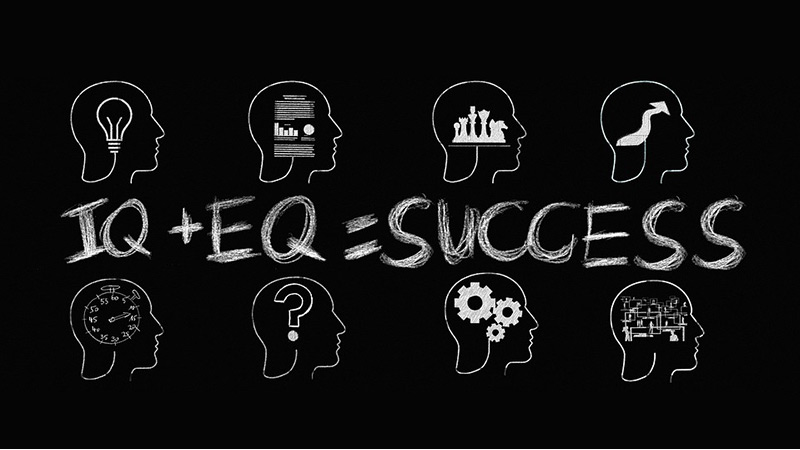

Posted on 10th Aug, 2020

Emotional Intelligence is about an individual's ability to recognize and understand emotions and how it impacts their behavior and attitudes To put it in even simpler terms, the concept of emotional intelligence refers to how somebody manages their personality, to be both personally and interpersonally effective.
Also known as one's Emotional Quotient or EQ, an individual's emotional intelligence is considered at par with one's IQ (Intelligence Quotient) in terms of being necessary to thrive at various aspects of life, including at the workplace.

According to eminent psychologist Daniel Goleman an individual's Emotional Intelligence, has five core components:
Self-awareness – the ability to recognize and understand one's own moods and emotions, and how they affect others
Self-regulation – the ability to one's control impulses and moods, and to think before acting
Internal (or intrinsic) motivation – being driven to pursue goals for personal reasons, rather than for reward (the opposite is external motivation)
Empathy – the ability to recognize and understand others' motivations, which is essential for building and leading teams successfully
Social Skills – the ability to manage relationships and build networks
Broadly speaking, persons with a high EQ are more in tune with their own emotions as well as the emotions of others!
At work, being emotionally intelligent involves being sensitive and perceptive towards the emotions of other people and having the ability to intuitively help facilitate an improved performance from self and others, basis this knowledge.
Routine decisions at the office, including those of promoting, hiring, and firing employees, are often well influenced by the EQ of the parties involved. Often, an employee's EQ is valued far more than their IQ, with decisions related to hiring and promotions especially highlighting this emphasis on the emotional intelligence of a candidate or employee. In identifying leadership qualities in an individual too, EQ is given a heavy weightage, with a high EQ bolstering the candidate's ability not only to self-motivate and do well themselves, but also to encourage, empathize with, and elevate those around themselves.
With the modern workplace being characterized by open communication, teamwork, and mutual respect among employees and their supervisors; having a high emotional intelligence quotient, allows for managers to understand and motivate people they supervise, much better than they would be able to if they lacked a healthy EQ.
Emotional intelligence also has a significant important impact on the self-development and leadership qualities of a manager. Actively and consciously working towards developing a higher EQ, yields significant results not only in terms of productivity, but also in building positive relations with others(both in and out of the organization), and gaining the emotional commitment of employees.
Taking this one step further, managers developing and exhibiting high EQ strengthens the organizational culture, simultaneously stretching its flexibility and sharpening its resilience. In the long run, both these factors are likely to lead to a significantly greater competitive advantage in the market.
Particularly, empathic communication between senior leaders and employees facilitates the development of a culture of trust. This in turn helps increases synergy among team members, which then stimulates employees' creativity - an essential component in developing new solutions and coming up with innovative responses to the increasingly complex demands of the constantly learning and updating society.
In any economy, either flooded with labor or facing acute labor shortage, finding, and holding on to good employees, is of tantamount importance. It's expected thus that the significance of emotional intelligence is only going to continue to increase in the business world!
For organizations, the best way to find a hold on to the employees they want, is by liberally incorporating emotional intelligence into both the personal and organizational management philosophy.
Neither business owners nor the managers can afford to allow themselves to forget that their employees are real people, each with their own real lives and emotions which greatly affect how they think, feel, and act. Simply, leaders with high emotional intelligence understand that their staff members are people first and workers second; and it is this understanding – and subsequent empathic functioning - which is, and is going to continue to be key, in finding and retaining the best talent.